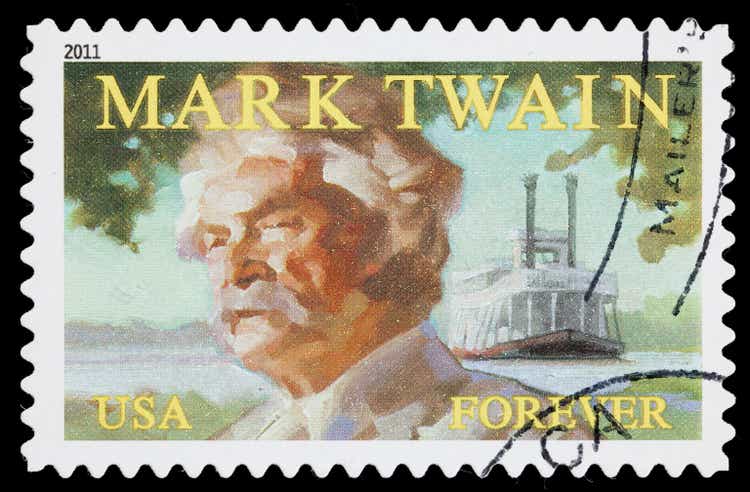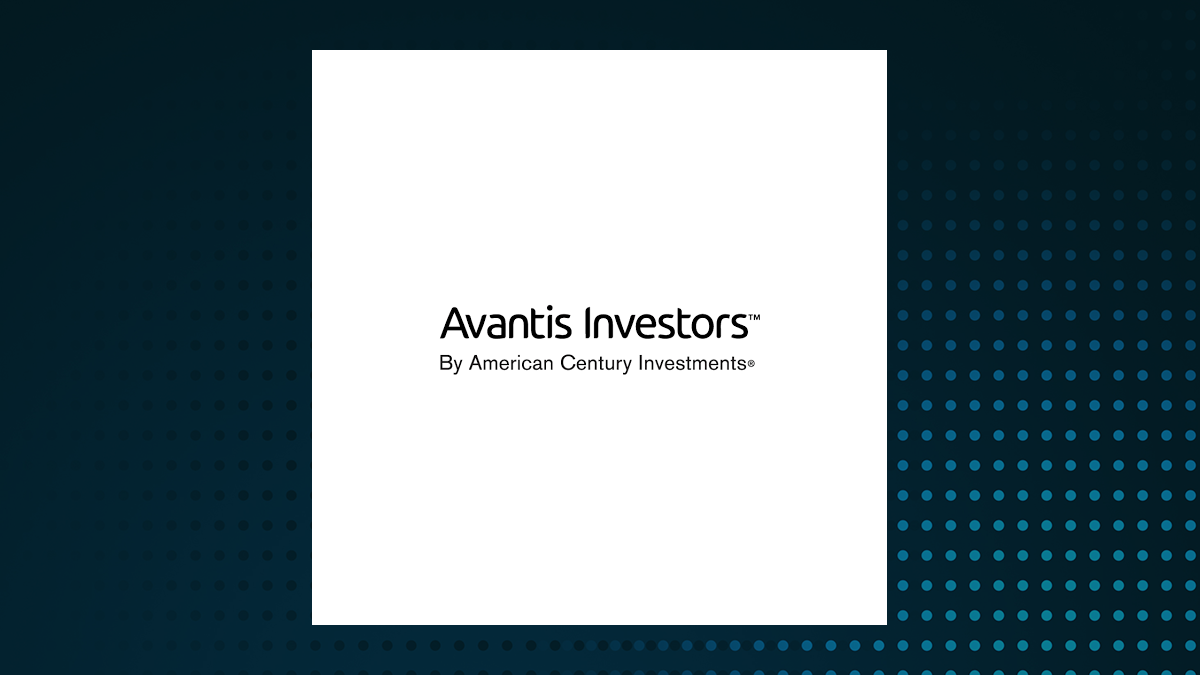
Editor's note: Seeking Alpha is proud to welcome Jon Gillett as a new contributing analyst. You can become one too! Share your best investment idea by submitting your article for review to our editors. Get published, earn money, and unlock exclusive SA Premium access.
Click here to find out more » PictureLake/iStock Unreleased via Getty Images Mark Twain once wrote, “The reports of my death are greatly exaggerated.” These are fitting words for the current state of Medical Properties Trust, which, despite the fears and negative sentiment surrounding the name, appears to me to be extremely attractive from a risk/return perspective at this stage of the game. Granted, it’s been a rough ride for investors over the past few years, but approaching valuation from a forward-looking, probabilistic viewpoint, it appears to me that the potential upside to its current price is much greater than the potential downside, and also significantly more likely.

History Medical Properties Trust ( NYSE: MPW ) is an internally managed real estate investment trust (“REIT”) that primarily owns hospitals, which it leases to hospital operating companies on a net basis. This means that the tenant has to cover virtually all of the costs associated with the property. When tenants are stable, as was the case for 15 years or so prior to the current debacle, MPW in turn provides extremely stable, low risk cash-flows compared to most other REIT’s, which are highly valued by the market.
For the most part, once a property is leased, all MPW has to do is cash the checks and wait 15 years for the renewal. Leases are typically 10 to 15 years in duration, with small escalators that increase rent every year (frequently capped at 2% per year). MPW’s portfolio consists of 435 properties and roughly 42,000 licensed beds in 9 countries, which are leased to 53 operators.
For many years, this portfolio provided extremely stable returns, with functional occupancy of near 100%, minimal serious tenant issues, and high AFFO multiples, with Price/AFFO hitting as high as 22 times and share price breaking $23 at the peak in 2021. Disaster Strikes In 2022, the share price was cut in half, and in 2023 it managed to do so again, with the current bottom having been hit at $2.92 less than one year ago.
A price drop like this would normally imply a high risk of bankruptcy and ongoing cash operating losses, but strangely neither have been the case. The issues with MPW’s largest tenant, Steward Health Care, have been well documented by other analysts and I will not go into detail, except to say that their relevance is likely to diminish over the next 12 months, and the elimination of the related overhang should be a positive catalyst for the stock. The Long Road Down (Seeking Alpha) Despite the negative impact on cash flow caused by issues related to Steward, cash flow per share and tangible book value for the company as a whole never fell remotely as far as the share price did.
Current tangible book value, after baking in the Steward-related impairments, is still over $10/share, and recurring EBITDA, even at its current depressed level, is still providing interest coverage of roughly 1.8X, with a current FFO yield of over 19% , and normalized FFO materially higher. And these numbers are likely to improve as the hospitals that MPW has not been receiving consistent rent for over the past year are re-leased or sold.
Cash Flow Reality is that the majority of MPW’s tenants still pay their rent on time, and the company generates a lot of cash, even in its current, temporarily strained circumstances. Looking below, you can see that after paying interest expense, recurring cash from operations per share is running at around 20% of the current share price and interest coverage measured this way is just under 2X. I am making the assumption that maintenance capital expenditures are minimal under their triple-net leases.
Momentum is ugly, but we should be nearing the trough of this cycle. Reality is that current rental income is depressed and operating expenses are higher than they should be after the dust finally clears and management’s dream of the word “Steward” being eliminated from everyone’s vocabulary has finally been realized. CF Ops Overview (Author) Fundamentals Likely to Improve At this point, I believe the underlying problems MPW is working through are more than baked into the share price, and that news flow on a forward basis should be positive, along with developments in the underlying fundamentals of the business.
While recent earnings have been impacted by huge write-offs related to the Steward bankruptcy, those are both non-recurring and non-cash, and the likely natural progression of the situation would be for write-offs to wind down, new lessors to move into the troubled hospitals, and earnings and cash flow to improve materially as a result over the next several quarters. This is supported by CAO Kevin Hanna’s comments on the 1Q call, that cash flow in the back half of 2024 would be higher than that of the first half (although attributed to seasonality). 1Q24 Conference Call Transcript (Seeking Alpha Transcripts) Steward currently occupies over 17% of MPW’s properties, while accounting 2Q24 10-Q: Remaining Properties Occupied by Steward (Seeking Alpha Transcripts) for only 7% of revenues, which implies that when these properties are re-leased to new tenants, the related improvement in revenues could be as high as 10% of the current level, just from re-leasing the hospitals to more stable tenants.
Unusual items such as excessive litigation expense and the related distractions should also go away when all of this is over. The bottom line is that barring any new, unforeseen problems, the natural progression of the current situation would be for EBITDA to improve from here, along with interest coverage, valuation metrics, and ultimately sentiment, resulting in multiple expansion (although it is hard to imagine ever seeing 22X AFFO again) to a level in line with its REIT peers. Refinancing Risk In my opinion, the greater long-term threat to the company was created by the mismatch between the average duration of MPW’s leases and the average duration of the debt used to finance the properties.
By locking in revenues for 15 years under long-term leases with only 2% escalators, and then financing the properties with much shorter-term debt, they ran the risk, which has now been partially realized, that interest rates could move up materially and interest expense could double or triple during a period of time in which revenues only moved up by several percentage points. However, management has obviously recognized the problem and is working diligently to fix the capital structure, having raised an amount equal to almost 25% of the total debt outstanding so far this year. As of the end of the second quarter, net debt has dropped to $8.
7 billion, and almost more importantly, CFO Steven Hamner indicated at a couple different times on the conference call that the pricing that they have been receiving on property sales has been strong, which I will interpret to mean that it has been equal to or greater than book value, with one recent transaction reportedly at a cap rate of under 7.5% . 2Q24 Conference Call Transcript (Seeking Alpha Transcripts) This is important, because if sales can be made above book value, and debt can be purchased at or below face value (as is obviously the case with the bonds selling at 11% yields), there is a clear path to victory, by reducing leverage and improving interest coverage with asset sale proceeds being used to pay down the debt.
For example, if another $2.5B in asset sales are generated by selling properties at a 7.5% cap, with the proceeds used to pay down debt selling at an 11% yield, where would leverage and interest coverage be at the end of that? Or better yet, if $2.
5B of asset sales are used to pay down $1.5B of debt and buy $1B of stock, where do you think the stock would be after that? I doubt the board and management could take such aggressive action, but any step in that direction could have a huge impact, given that open short positions equal 35% of currently outstanding shares. Granted, there is no way to know for certain that future property sales will continue to be at attractive valuations, but Mr.
Hamner also stated on the call that the quality of the remaining portfolio is at least as good as the quality of the assets sold. 2Q24 Conference Call Transcript (Seeking Alpha Transcripts) It’s also worth pointing out that if they accomplish another $2.5B of asset sales over the next 18 months, that would leave them in an excellent position to secure reasonable interest rates on future refinancings, which would obviously also be aided by a falling interest rate environment.
Being on the other side of the Steward debacle will help as well, as Mr. Hamner indicated in the Q&A: 2Q24 Conference Call Transcript (Seeking Alpha Transcripts) Management Incentive I was encouraged to see that management appears to have been given a fresh round of options to motivate them to take the share price higher, particularly given that there does appear to be a clear path to victory if that is the goal. In general, corporate management teams face a conflict of interest when they can improve the share price of their stock by shrinking the company, as their personal fiefdom is being sacrificed for something that they may have less of a personal interest in.
Hopefully, these new stock options will motivate management to put first things first and make the clear strategic choice to sell properties at a 7.5% cap and use the proceeds to buy debt at an 11% yield and/or stock at an FFO yield of roughly 20% . The appeal of this very simple arbitrage using currently existing valuations will be made more attractive to management by their new options.
2Q24 Conference Call Transcript (Seeking Alpha Transcripts) Why Impairments Matter MPW’s recent spate of impairments has been extrapolated forward by some, and used as a basis for projections of ongoing deterioration in its cash flows and interest coverage. This is not reflective of reality. Given that past adjustments were based upon all known issues as of the time of the adjustment, they are unlikely to persist at this level going forward (barring a fresh round of unforeseen disasters).
The most important aspect of impairments is the calculated valuation that they are adjusting to, which in this case is over $10 per share. Future impairments are certainly possible, but they have no direct bearing on actual asset values, cash flow, interest coverage, etc. Upside and Downside It appears that the probability of cash flows improving in the back half of the year (as indicated by management), the Steward properties being leased to new and higher-quality tenants who pay on time, and additional property sales being accomplished before year-end, are all very high.
When the smoke ultimately clears, it is likely that MPW will have a little less property, a (mostly) stable tenant pool, reasonable leverage, sustainable long-term interest coverage, FFO above $1.00/share, positive earnings momentum and news flow, and improved investor sentiment, all of which would normally result in a return to a more normalized FFO multiple of between 10 and 20 times, depending on where the REIT industry as a whole is trading whenever we make it to that point. A reasonable projected price target would be 1.
5X book value or 15X FFO, which implies a potential share price in the mid-teens. A more bearish scenario would be if future property sales turn out to be impossible or at much worse valuations, interest rates shoot up and never come back down, and MPW ends up with $9B of debt at 8% or so, which would cost $180M/quarter in interest expense. Even in this scenario, I think they would have positive interest coverage, but equity value would obviously be strained.
Throw in another major tenant issue, and you could end up with equity value going to zero, but that feels like a low probability scenario at this point. Whither the Shorts? To be honest, my greatest point of confusion about this name is how in the world anyone could be short the stock at this point in time, much less short to the tune of around $1Billion. It is true that short sellers tend to be highly sophisticated, and they have absolutely killed it in MPW so far.
But it is also true that they often lose a lot of money in the long run (as a group anyway). At the end of the day, you do your research and make your call based upon the information in front of you, and from everything I see, MPW appears to be a very attractive long position. I would be lying, however, to say that the huge short position has not given me pause or made me look at this one harder than I otherwise would.
The good news (for long positions) is that if the shorts are wrong, they could have an absolute disaster on their hands when this thing starts moving against them. Covering 1/3 of outstanding shares is not something you do overnight, and the possibility of ending up on the right side of an epic short squeeze makes this trade all the more interesting. Back Up the Truck? So, while it would be wrong to say that MPW is a low-risk, stable equity, the odds that earnings and price momentum will be positive going forward appear high.
They have obviously not completed the turnaround quite yet, but the natural progression of the current situation should be for EBITDA and cash flow to improve, interest coverage to improve, leverage to come down, and investor sentiment to recover over the next 12 to 18 months. This should drive up the Price/AFFO multiple to a more normalized level and result in long-term share price improvement, as MPW finishes cleaning up the Steward debacle and transitions back into the stable, triple-net hospital REIT that it was widely considered to be just a few short years ago. Nothing is ever guaranteed, but from its current price level under $5/share, MPW’s shares appear likely to generate high returns over the next 12 to 18 months.
Analyst’s Disclosure: I/we have a beneficial long position in the shares of MPW either through stock ownership, options, or other derivatives. I wrote this article myself, and it expresses my own opinions. I am not receiving compensation for it (other than from Seeking Alpha).
I have no business relationship with any company whose stock is mentioned in this article. I am a financial advisor and own MPW in both my personal and client accounts. Seeking Alpha's Disclosure: Past performance is no guarantee of future results.
No recommendation or advice is being given as to whether any investment is suitable for a particular investor. Any views or opinions expressed above may not reflect those of Seeking Alpha as a whole. Seeking Alpha is not a licensed securities dealer, broker or US investment adviser or investment bank.
Our analysts are third party authors that include both professional investors and individual investors who may not be licensed or certified by any institute or regulatory body..














